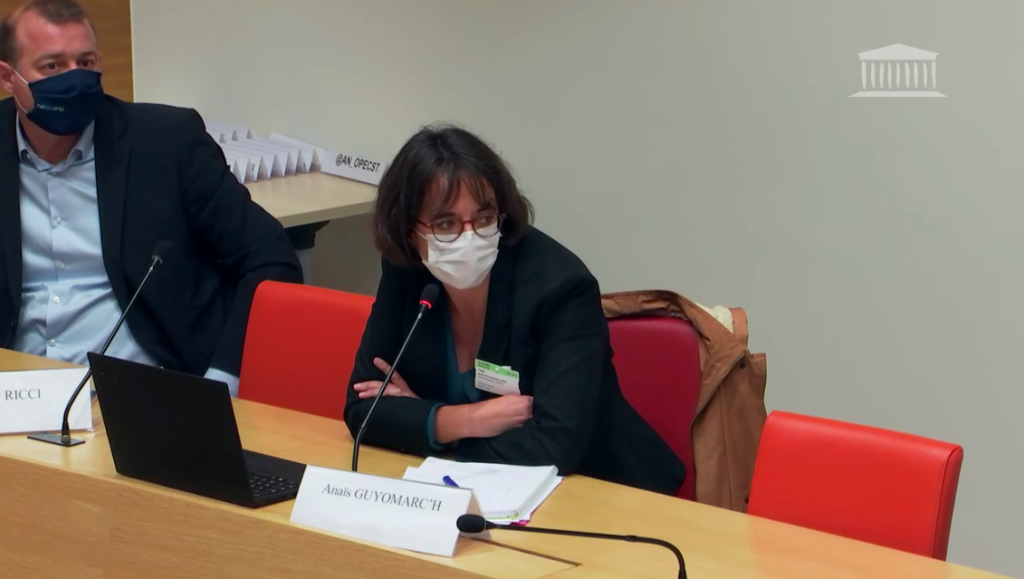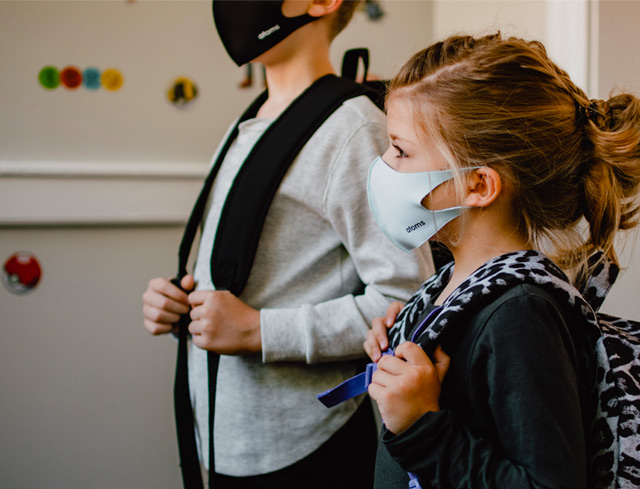21/11/2024


23 November 2021
On Thursday 4 November, the Parliamentary Office for the French Evaluation of Scientific and Technological Choices (OPECST) organised a public hearing on "Coronavirus transmission in confined environments, CO2 sensors and air purifiers" (Jean-Luc Fugit, MP, and Angèle Préville, Senator).
 Thierry Ricci, president and founder of NatéoSanté and Anaïs Guyomarc’h, director of operations
Thierry Ricci, president and founder of NatéoSanté and Anaïs Guyomarc’h, director of operations
Thierry Ricci, founder and director of NatéoSanté and Anaïs Guyomarc'h, director of operations, were present at the French National Assembly to participate in this public hearing. Alongside Tony Renucci (president of the Respire Association) and Sébastien Dulermo (deputy mayor of Paris 9), NatéoSanté was able to go back over the study carried out between February and April of this year in an elementary school in the 9th arrondissement of Paris on the action of air purifiers.
As early as 2017, during the National Air Quality Day, the elected officials of the Paris 9 town hall became aware of the importance of air quality in schools.
"It all started long before Covid-19 and the health crisis.”
Sébastien Dulermo, Deputy Mayor of Paris 9.In January 2018, in France, the Grenelle 2 law established an obligation to monitor IAQ in some establishments (CO2, formaldehyde, benzene), including nurseries and elementary schools. As of 2018, the Paris 9 Town Hall has therefore installed CO2 sensors in all the schools of the arrondissement.
 To protect children and staff, the Paris 9 town hall has opted for NatéoSanté air purifiers
To protect children and staff, the Paris 9 town hall has opted for NatéoSanté air purifiers
Following the publication of the results of a 2019 study conducted by the Respire Association, the town hall of the 9th arrondissement of Paris wanted to go further, by equipping the 150 classrooms of primary and nursery schools with NatéoSanté air purifiers.
This initiative has just been recognised by the award, for the Mayor of Paris 9 Delphine Bürkli, of the Grand Prix des Maires on 17 November 2021, in the "Jury's favourite" category.
The experiment demonstrated both the effectiveness of CO2 measuring devices and the one of professional air purifiers in improving the IAQ in schools.
A clear difference in the concentration level of fine particles was observed, especially during the second week of the test, between the classroom with air purifiers and the one without. Both during quiet, unoccupied periods (evenings, weekends) and during peak periods, the particle levels were always higher in the classroom without air purifiers, even when opening windows. The results are therefore correlated with those of the CO2 measurements taken in parallel.
SEE THE DETAILED RESULTS OF THE STUDYAs Anaïs Guyomarc'h explains, "these PM2.5 concentration peaks have several origins: the agitation of pupils to go out for break and the opening of windows, which cause a movement of particles, as well as fine particles whose concentration is high outside the buildings."
Measurements in the classrooms have shown the effectiveness of the devices installed by the town hall. The air purifiers, programmed at minimum power, for reasons of acoustic comfort, reduce the concentration of particles by 20 to 30%.
Following the convincing results of this experiment, the Paris 9 town hall has chosen to install air purifiers in the canteens, as well as in the nurseries.
More about the efficacy of CO2 measuring devices